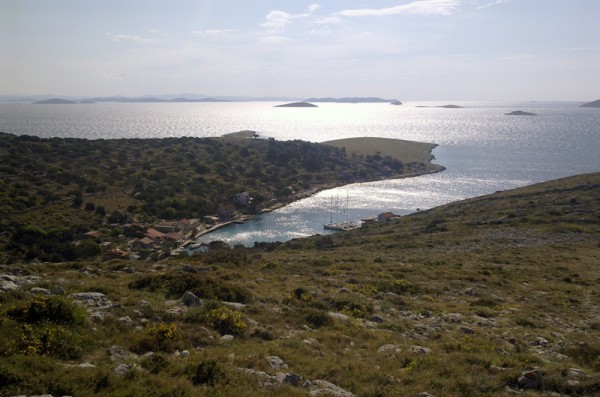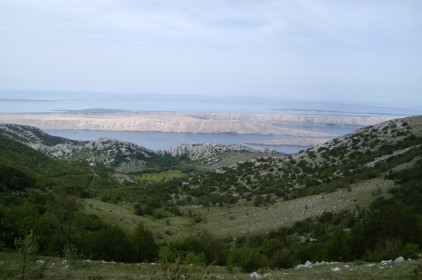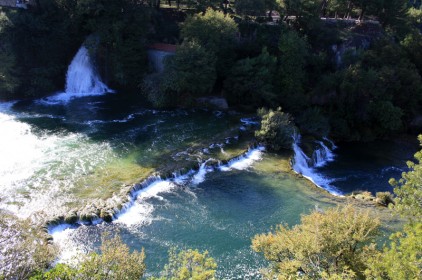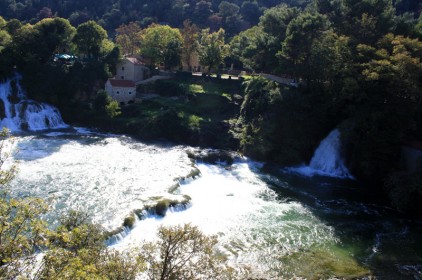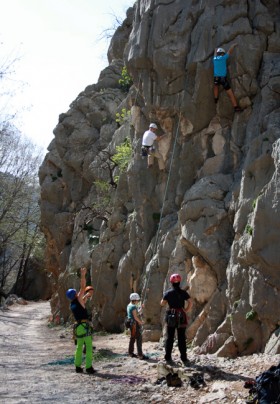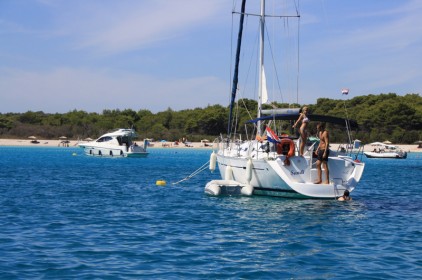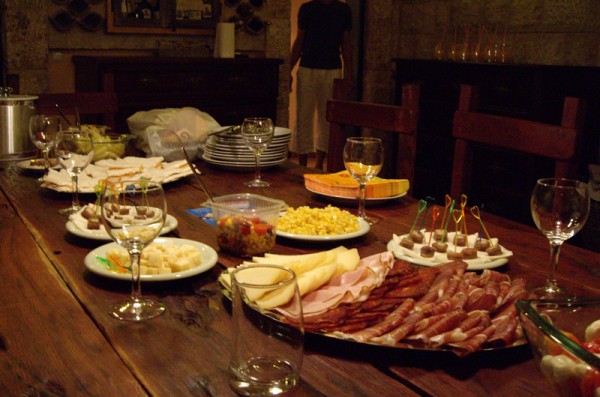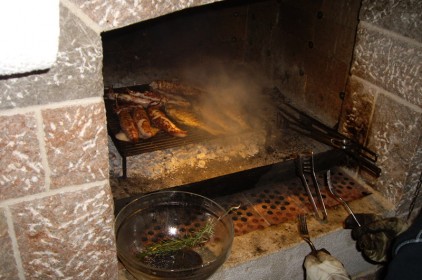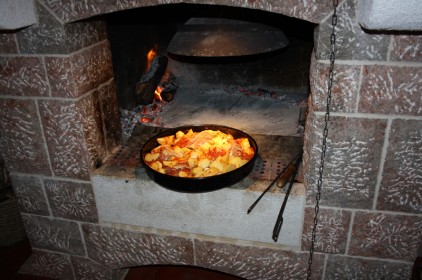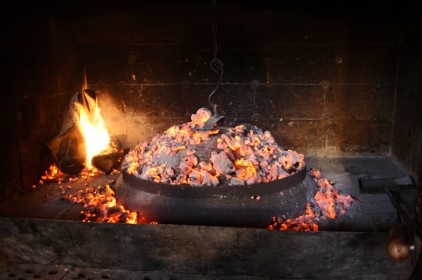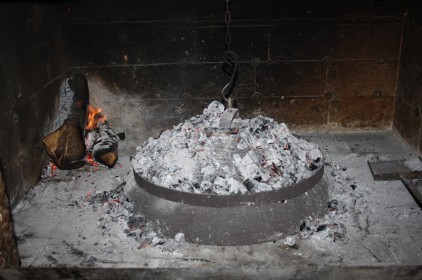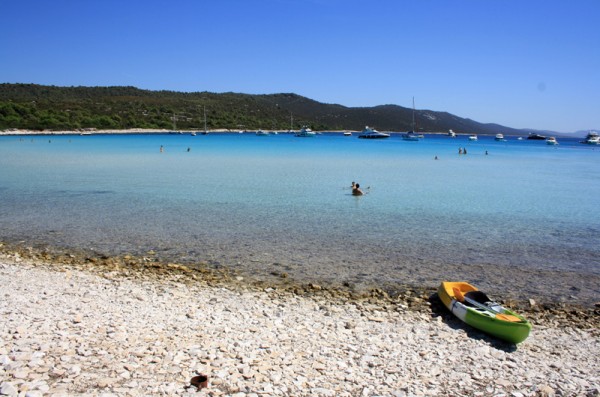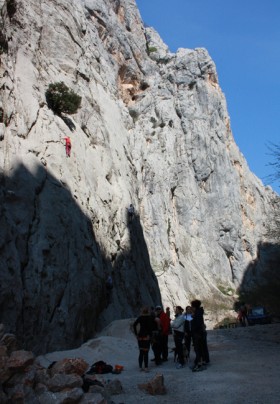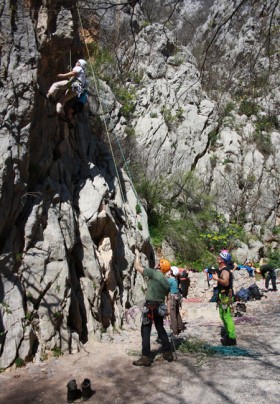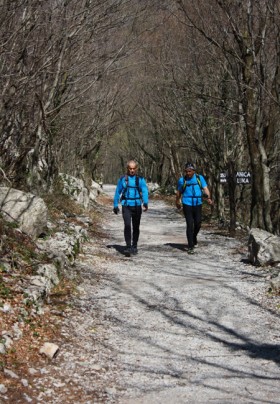IF YOU LIKE FOOD & WINE
There are so many things you have to try while in Croatia. Our wines are gaining international reputation, our food is grown and caught locally, all fresh, all tasty.
Buzara is a simple method for cooking shellfish and crustaceans. Sauteed quickly in olive oil with garlic, parsley and perhaps other aromatic herbs, splashed with white wine, thickened with breadcrumbs. Can be red with a bit of tomato added.
Brodet typically begins with a sautee of onions and aromatic herbs, lightly searing the fish, which is then removed. The sauce is built with tomatoes, and wine before returning the fish. Brujet must not be stirred while the fish is cooking in the sauce!
Black risotto is made with cuttlefish. A typical light lunch dish in Dalmatia and a must-have menu item in local taverns.
Fritule are sweet round fritters flavoured with rum and sometimes raisins, enjoyed all over Dalmatia, especially for winter holidays.
Gregada is a fish stew prepared with several kinds of white fish, potatoes, white wine, garlic and spices. Some variations also include grapes! The most famous gregada comes from the island of Hvar.
Gradele are not just for preparing fish, it is an entire lifestyle. Nothing beats freshly caught fish grilled on gradele with no extra preparations or ingredients, seasoned with olive oil, garlic and parsley.
Grk is a local grape variety grown only on the island of Korčula, near Dubrovnik. It is a heady white that goes well with all fruits of the sea, as well as chicken and cold cuts. It works as an aperitif too.
Kvasina is basically wine based vinegar for your salad, but as with wine, every house makes their own and some of them are exquisite. For a vinegar, that is.
Lešada is a popular and healthy way of preparing vegetables, meat or fish. It means 'boiled', and the dishes done that way are light, tasteful and usually abundantly sprinkled with olive oil.
Motar is a wild edible plant (Crithmum maritimum) growing from stone along the coast. Its aromatic leaves are preserved in vinegar and used in salads or appetizers, but if you want to pick some, beware, it is best before May.
Maraschino is a clear liqueur produced by distillation from a special kind of sour cherry called maraška, typically grown around Zadar. It was first created in Zadar’s Dominican monastery, and a few centuries later it was enjoyed among European royalty. Crates of Maraschino were even found on the Titanic. When in Zadar, swig some :)
Maraština is another local grape variety, producing a fruity white with traces of honey and hazelnut. Flavor is full and rounded with a very long and pleasant finish.
Prošek is a sweet dessert wine produced in Dalmatia. Prošek Hektorovich by winemaker Andro Tomić from Hvar is the most renowned among the locals.
Plavac Mali is the primary red wine grape along the Dalmatian coast producing rich, flavorful wines high in alcohol (typically 12% but up to 17%) and grape tannins with aromas of blackberries, dark cherries, pepper and spices. Try ones from Pelješac, Hvar or Brač.
Pršut is a dry-cured ham, similar to its Italian or Spanish relatives, but dried in the harsh 'bura' wind, which gives it a special kick.
Pinca is a simple cake (sweet bread) traditionally baked for Easter.
Paški sir is a famous hard sheep milk cheese with a recognizable spicy aroma, due to salted aromatic herbs that sheep eat when grazing on the island of Pag. Yes, that is the one right across from the camp.
Pašticada is stewed beef in thick sweet sauce made from root vegetables, wine, prunes or dried figs and spices, served with homemade gnocchi. In all honesty, Dalmatians prefer pašticada to any other meal, ever.
Peka is the traditional baking bell (made of clay or metal) used when cooking in the open fire and covered with hot coals. It is very versatile: bread, lamb, kid, veal, octopus, chicken, vegetables, big fish like sea bass...
Pošip is another potent white wine white (13 to 14.5%), witha distinctive flavor of dried apricots and figs. Moderate acids make it a perfect match for fish, shellfish and white meat. Best served at 12-14°C.
Soparnik is an ancient snack of two layers of thin crusty dough, filled with Swiss chard, onions, garlic and olive oil, sprinkled with chopped almonds. Traditionally baked on wood plates over open fire.



